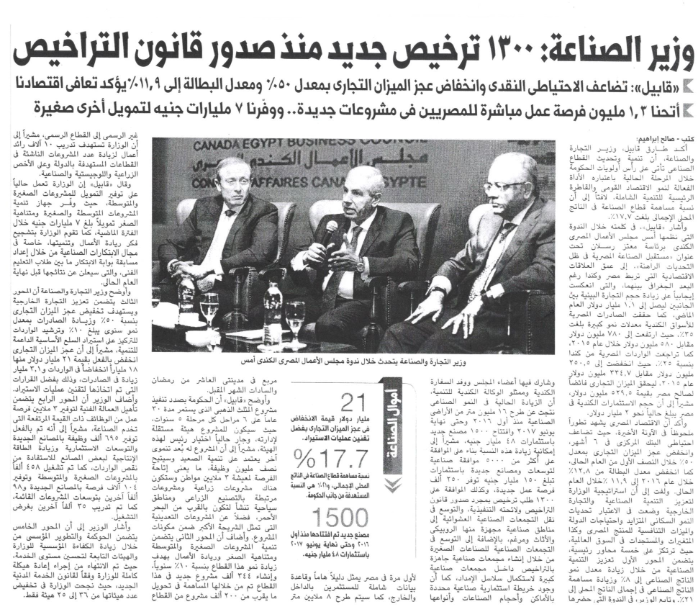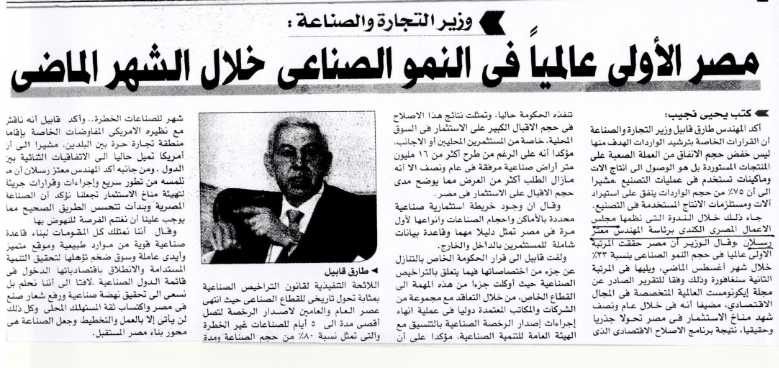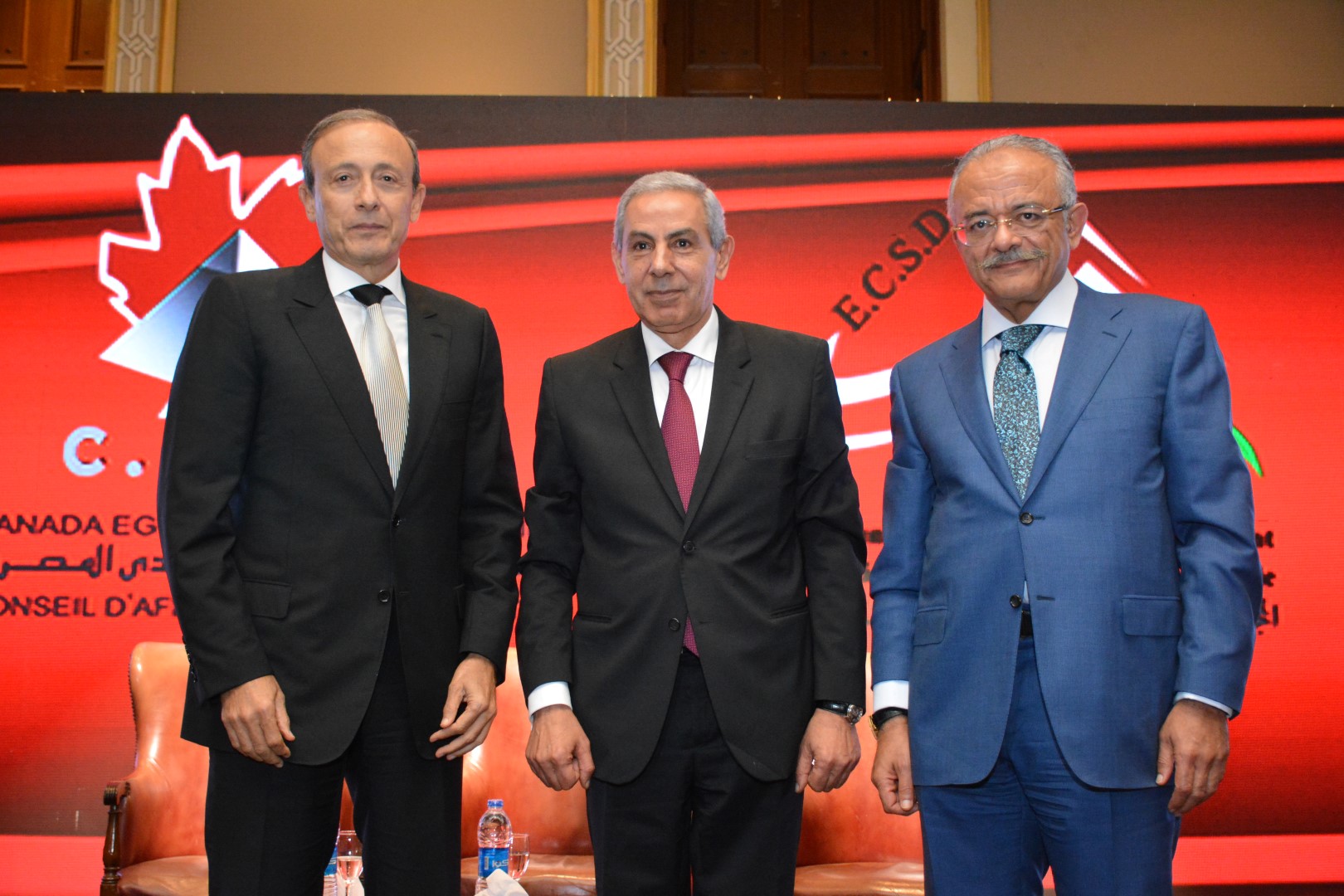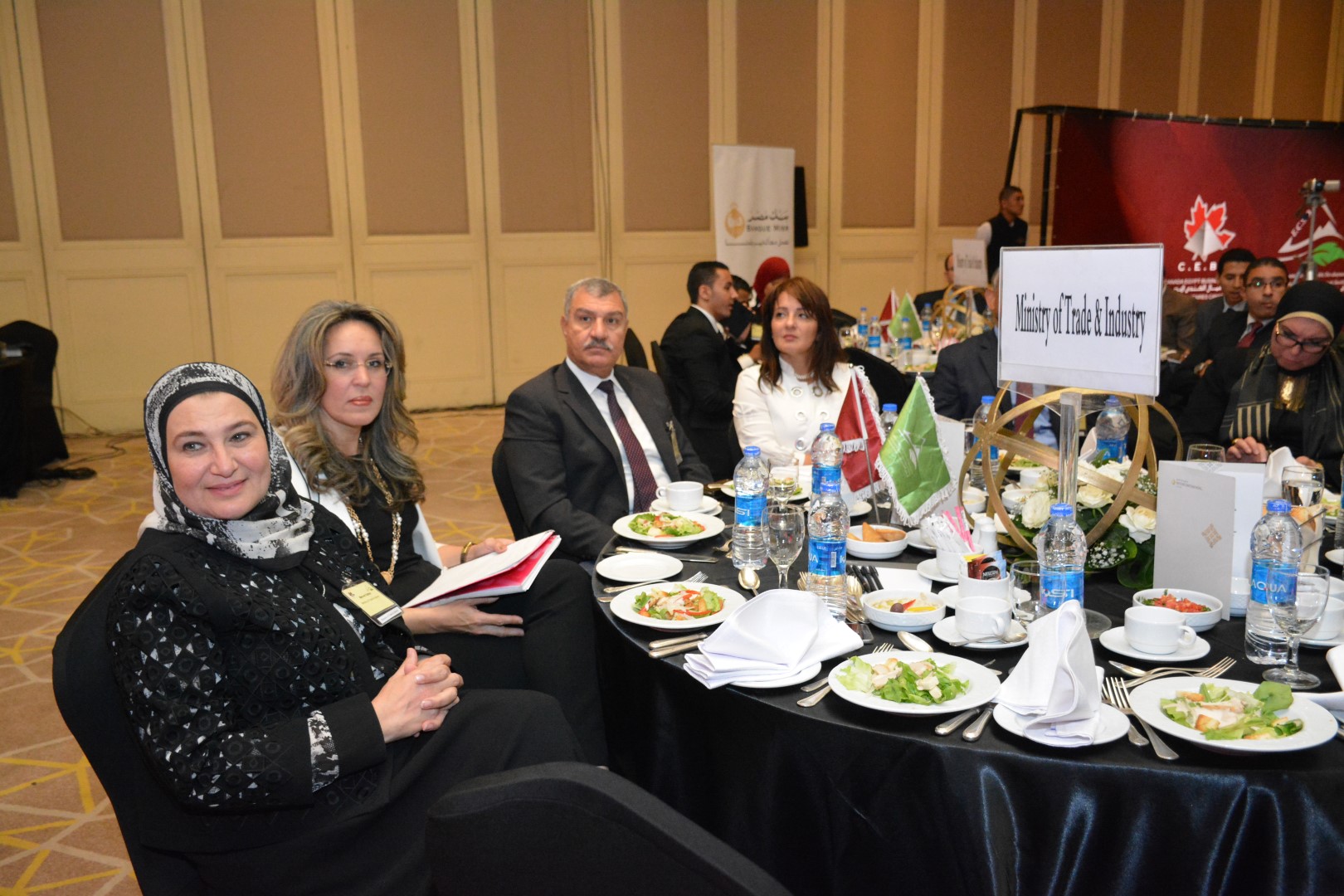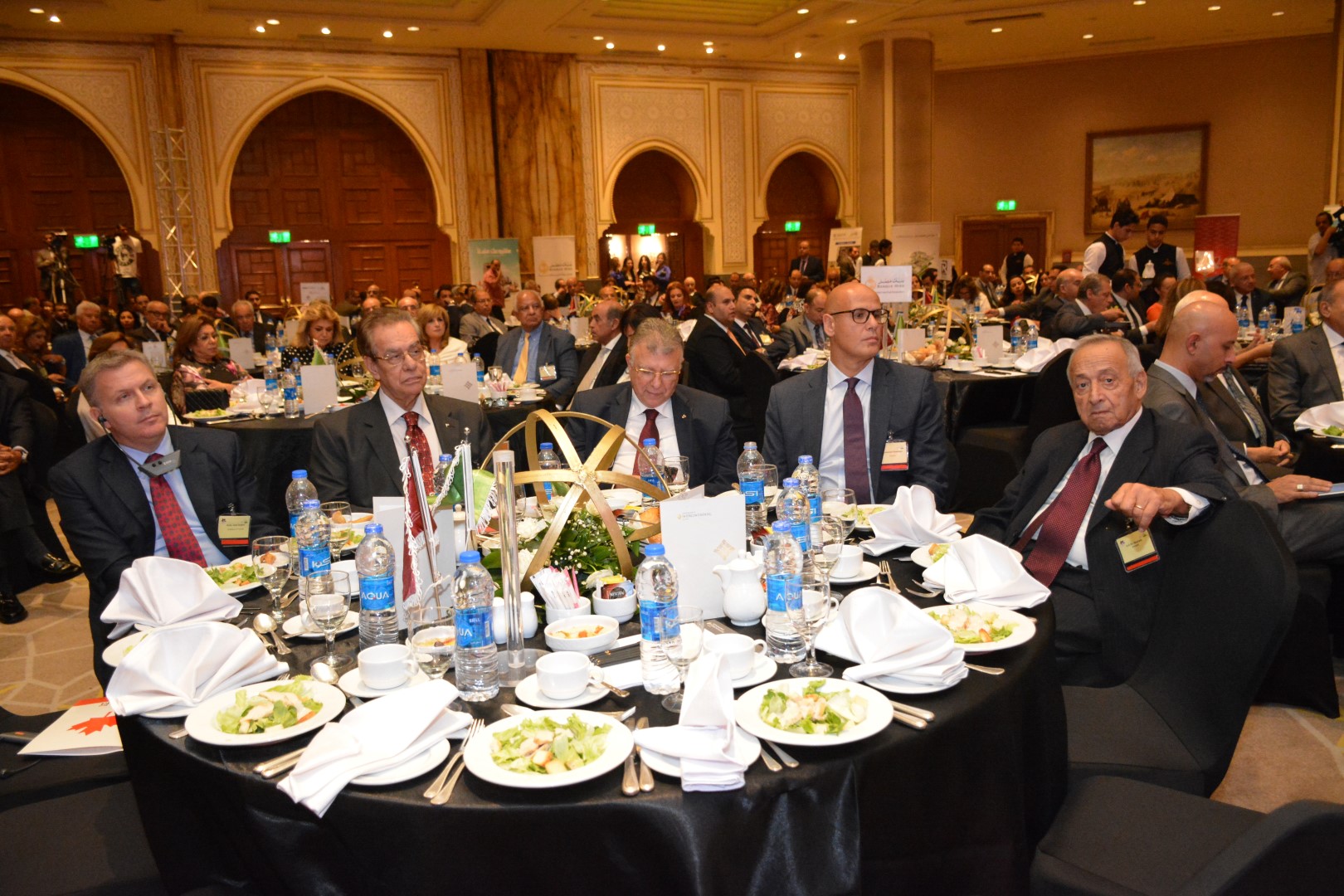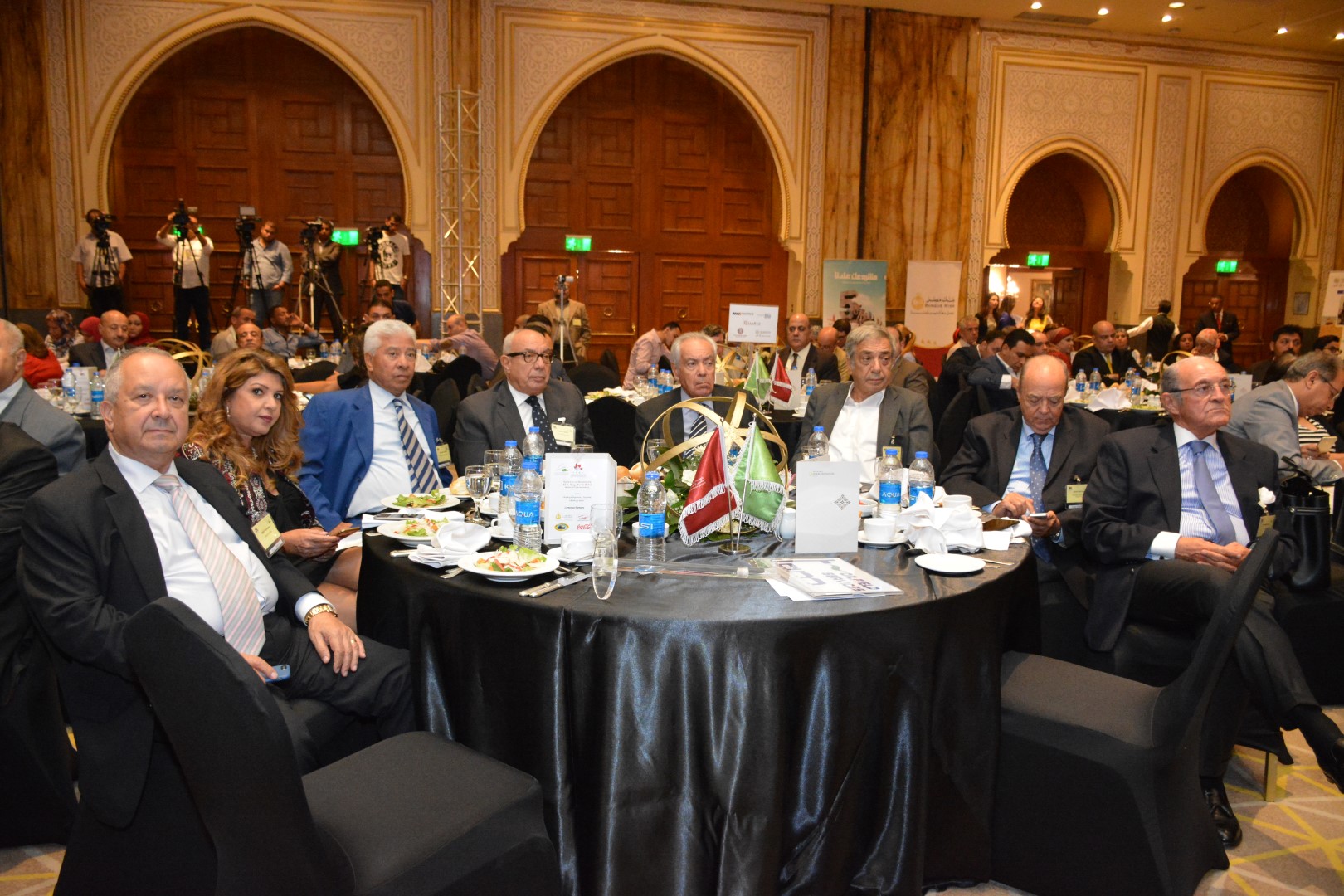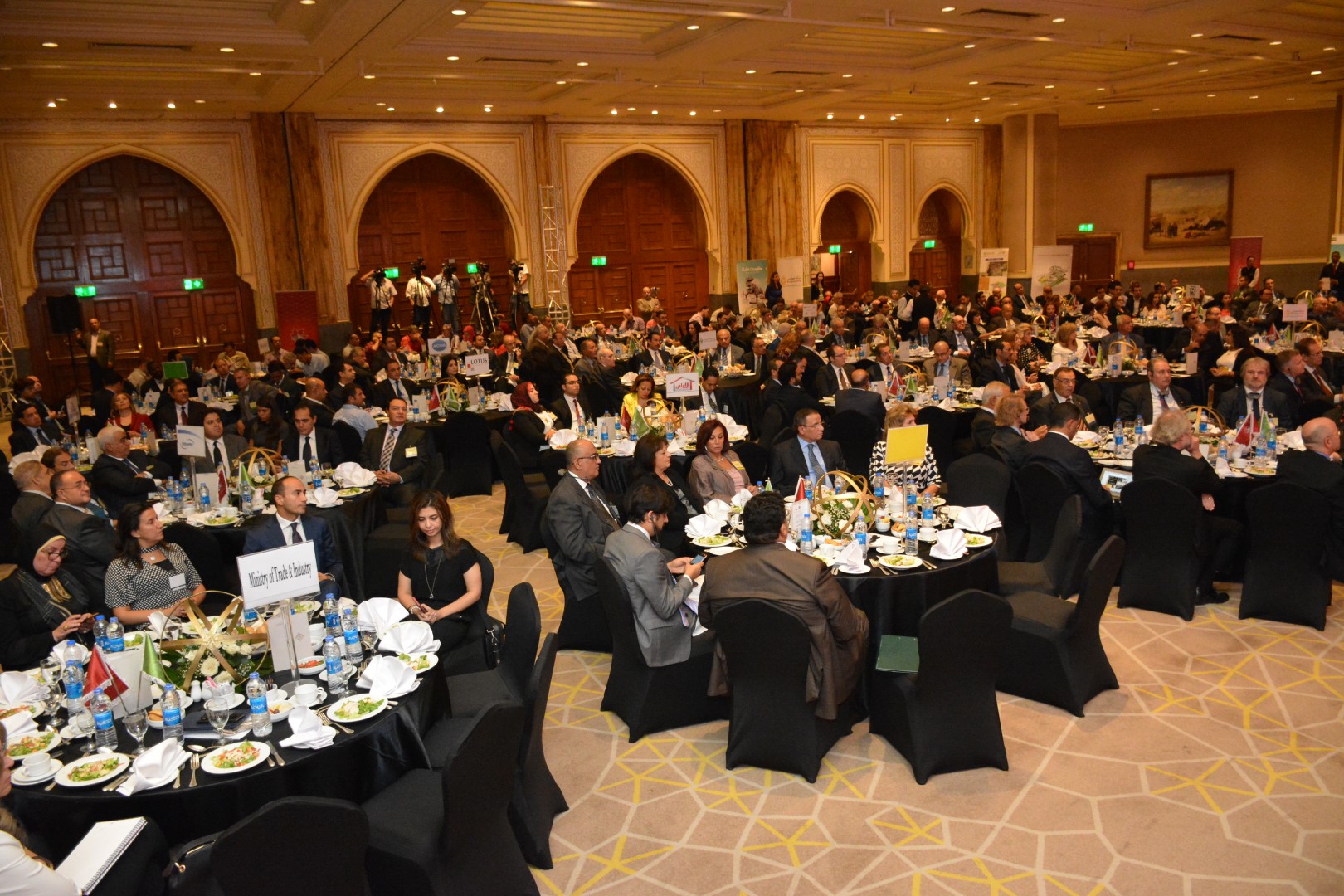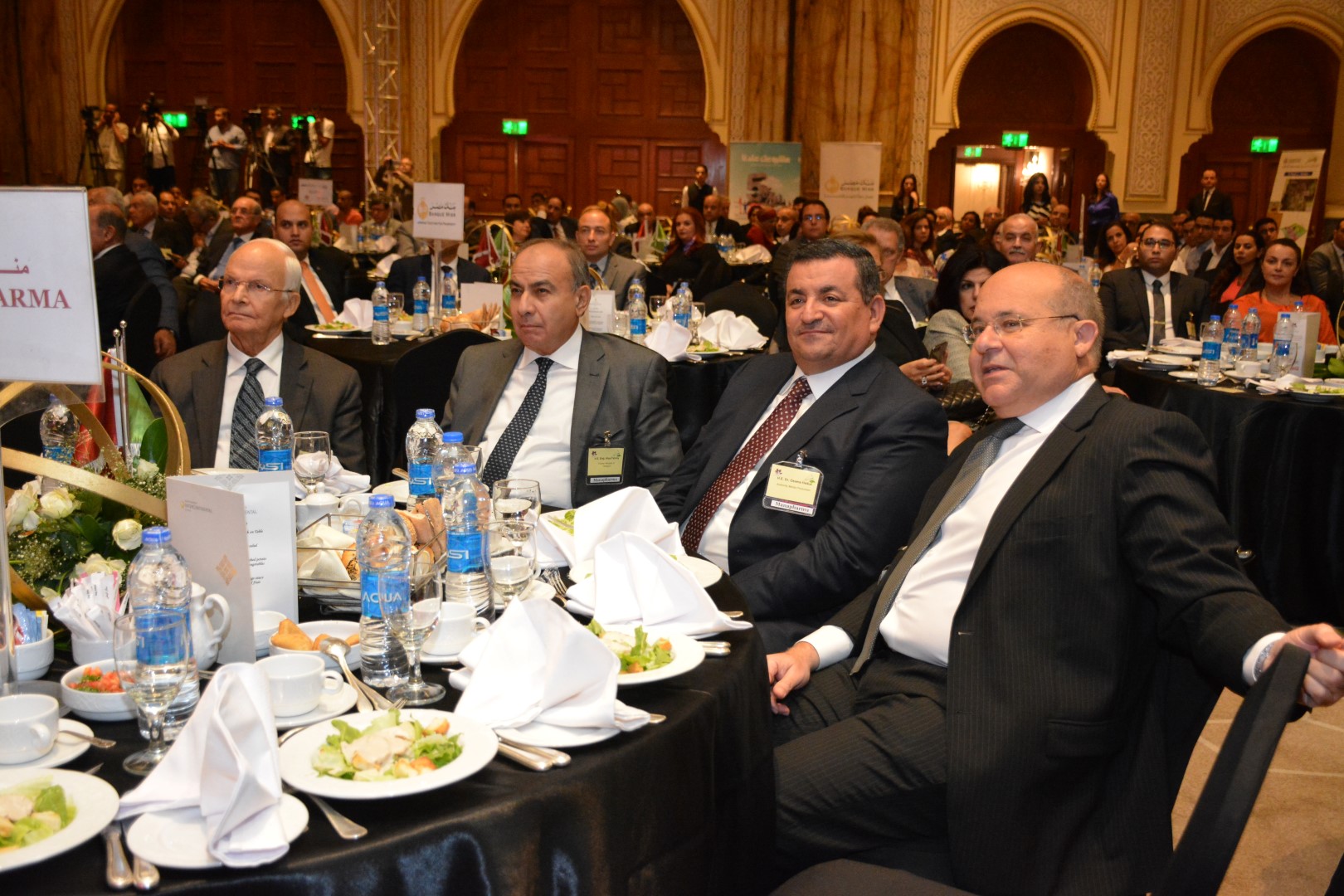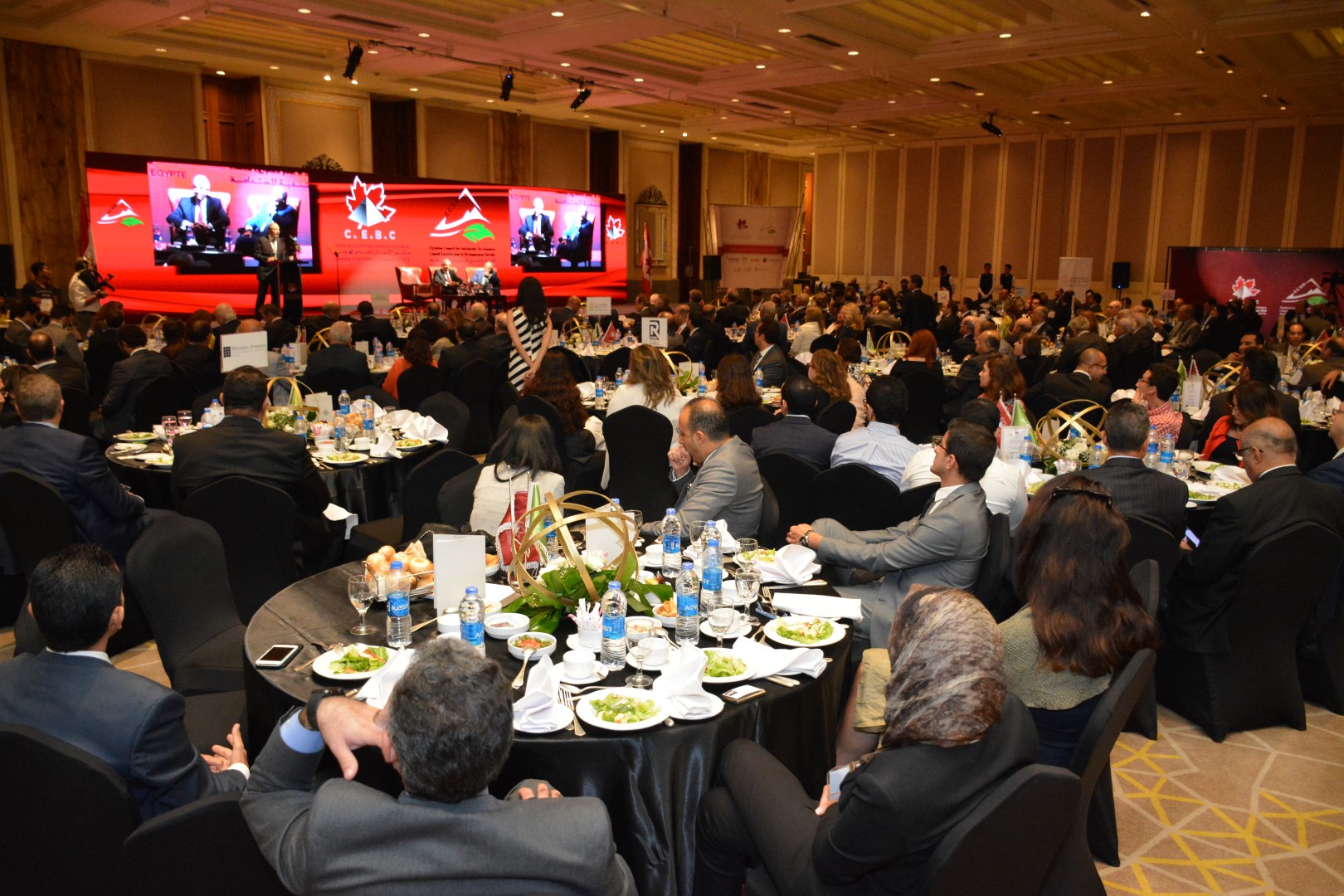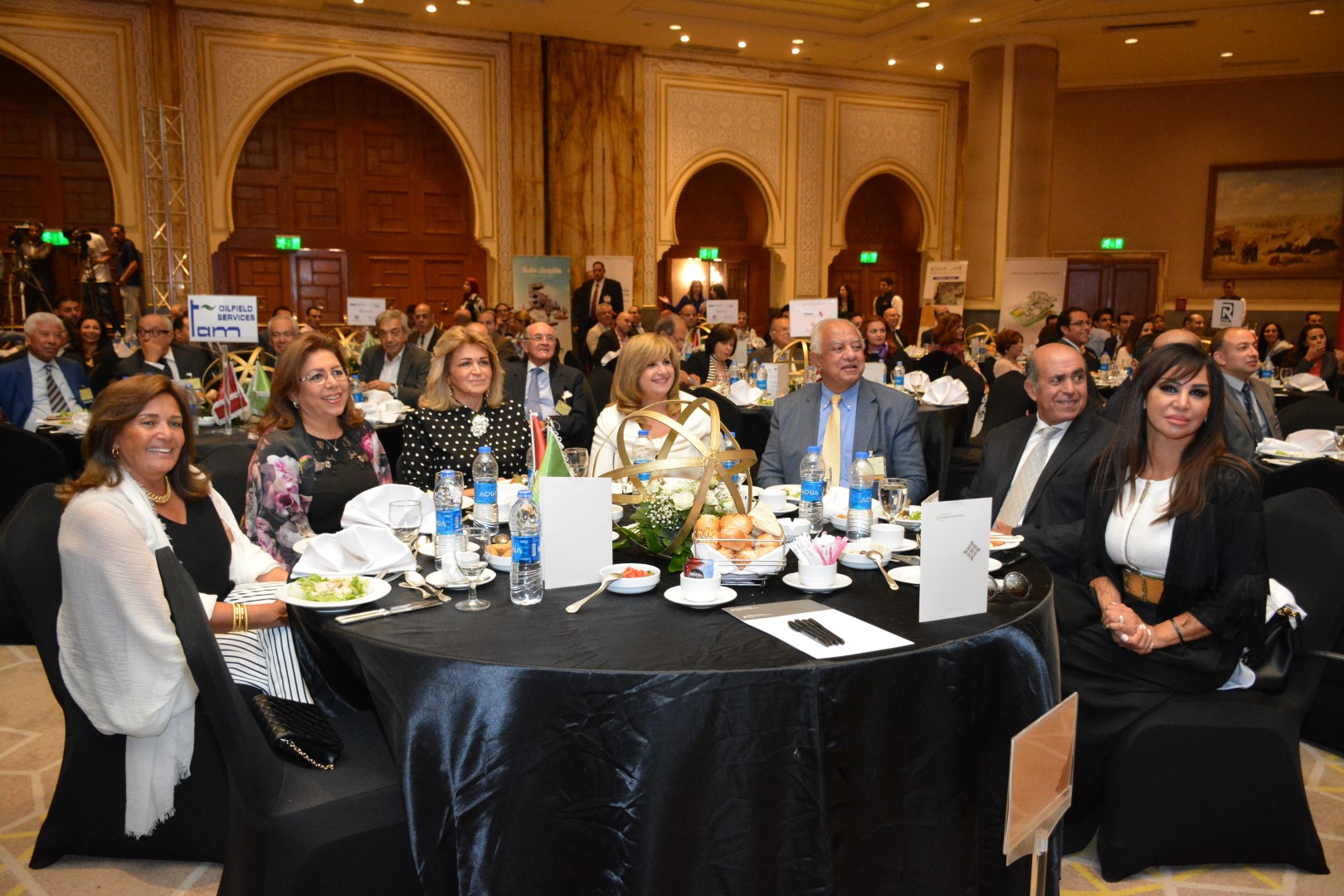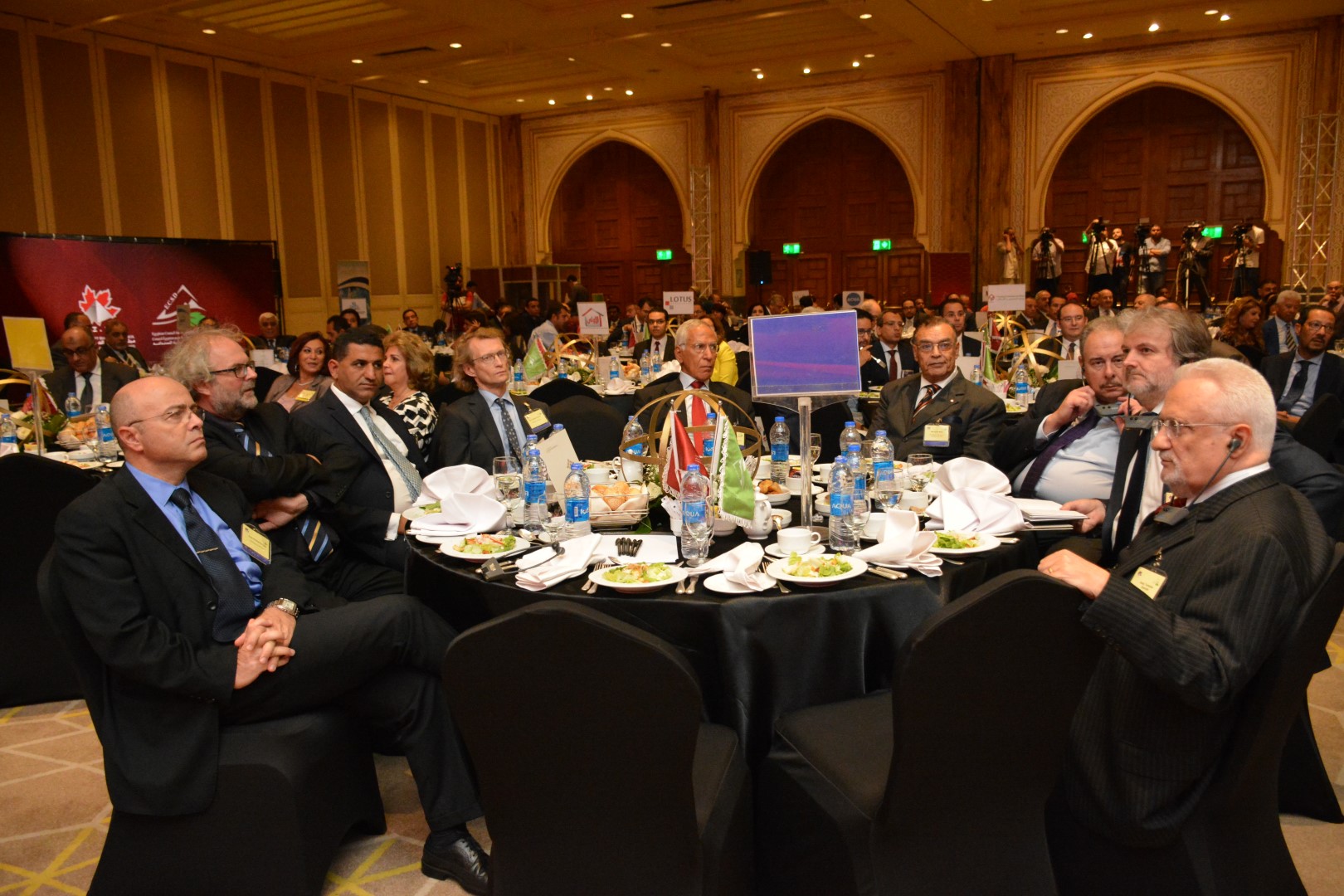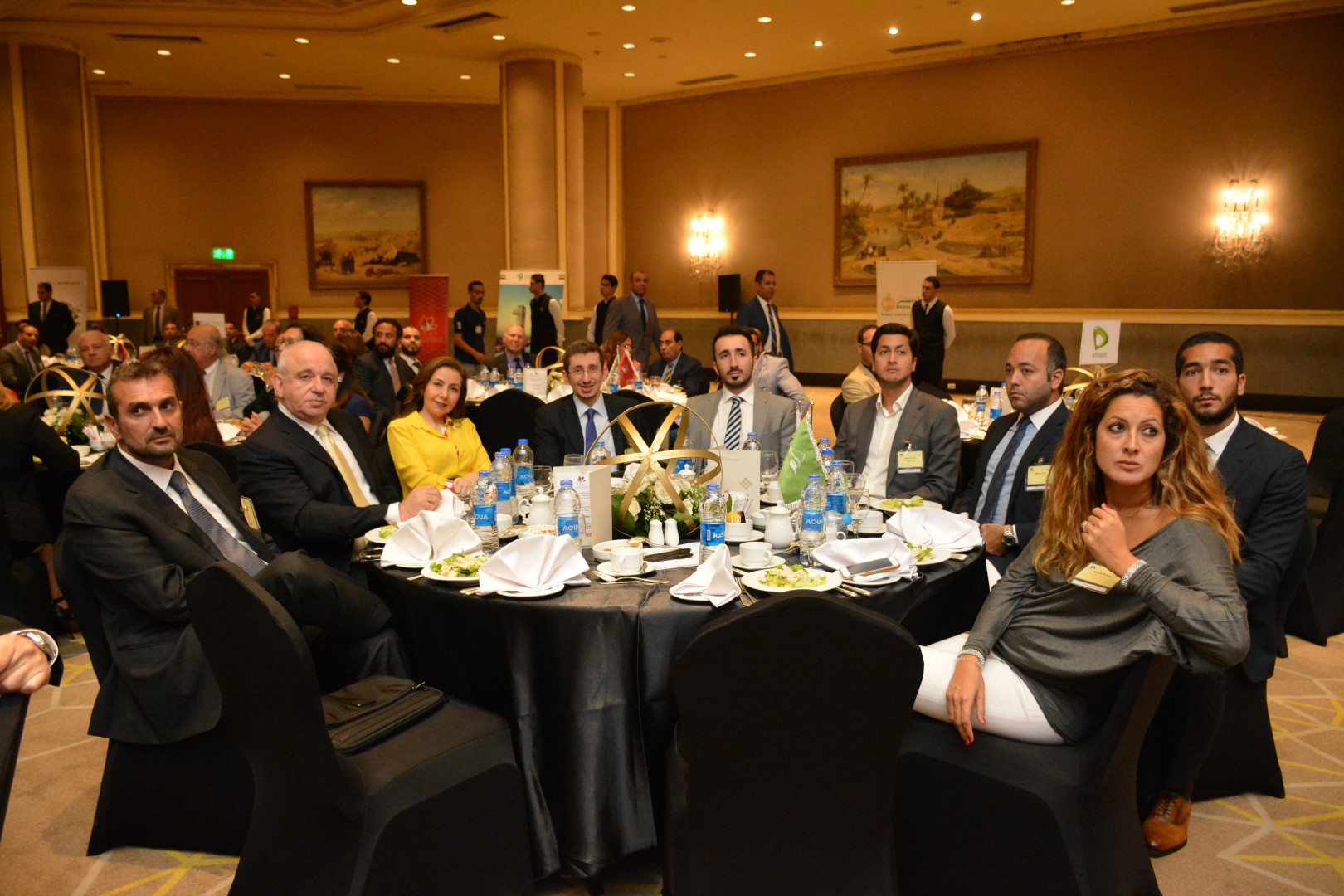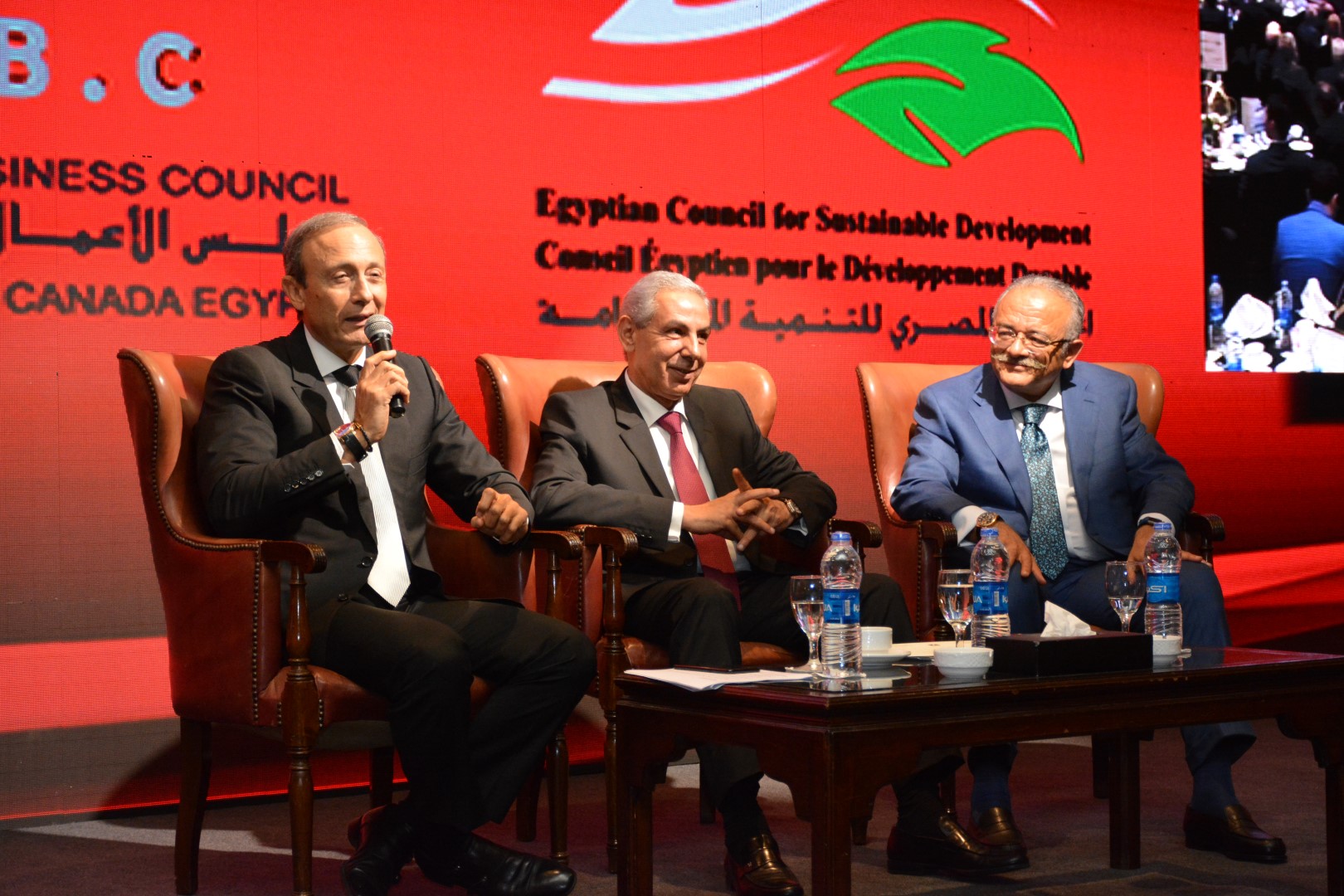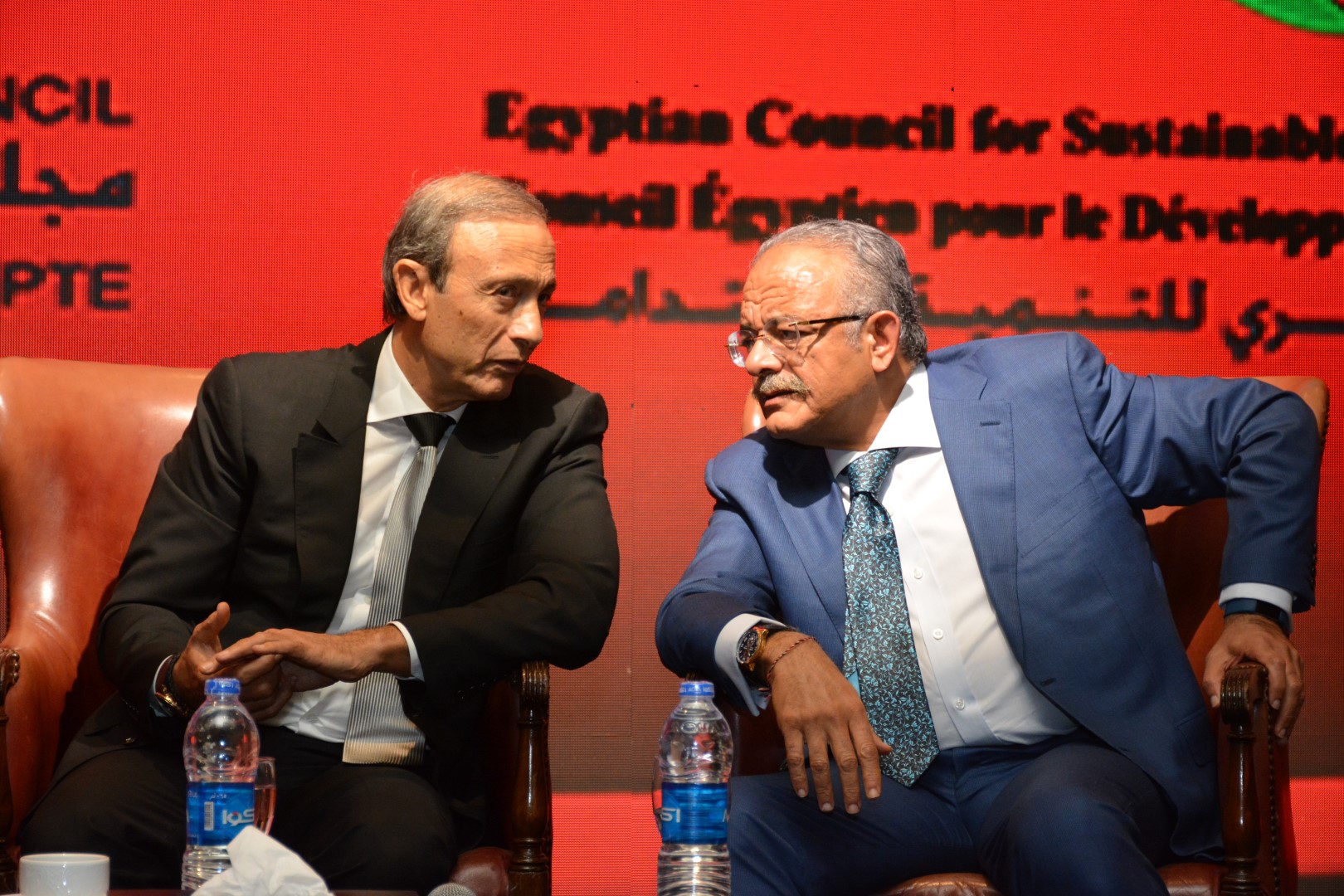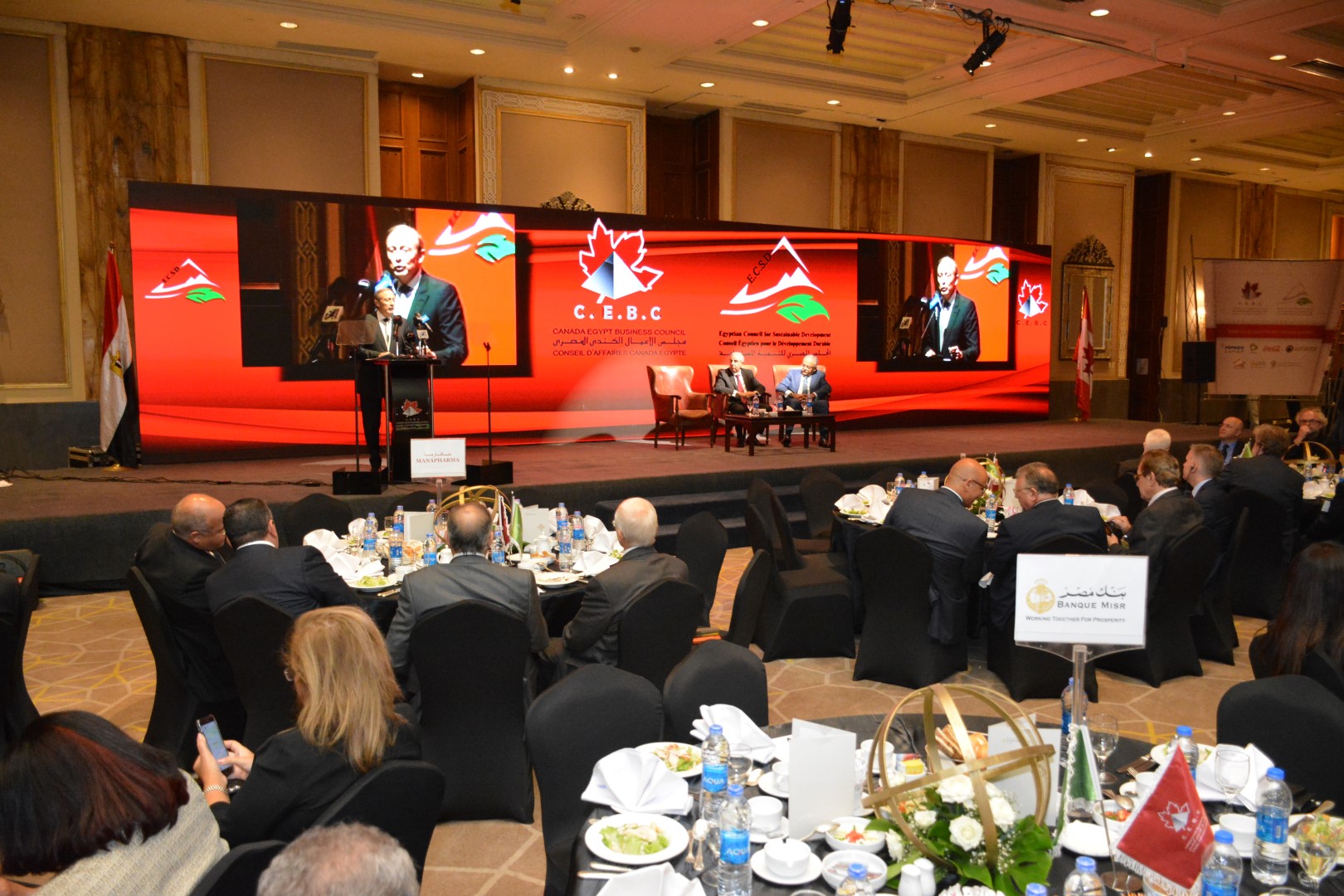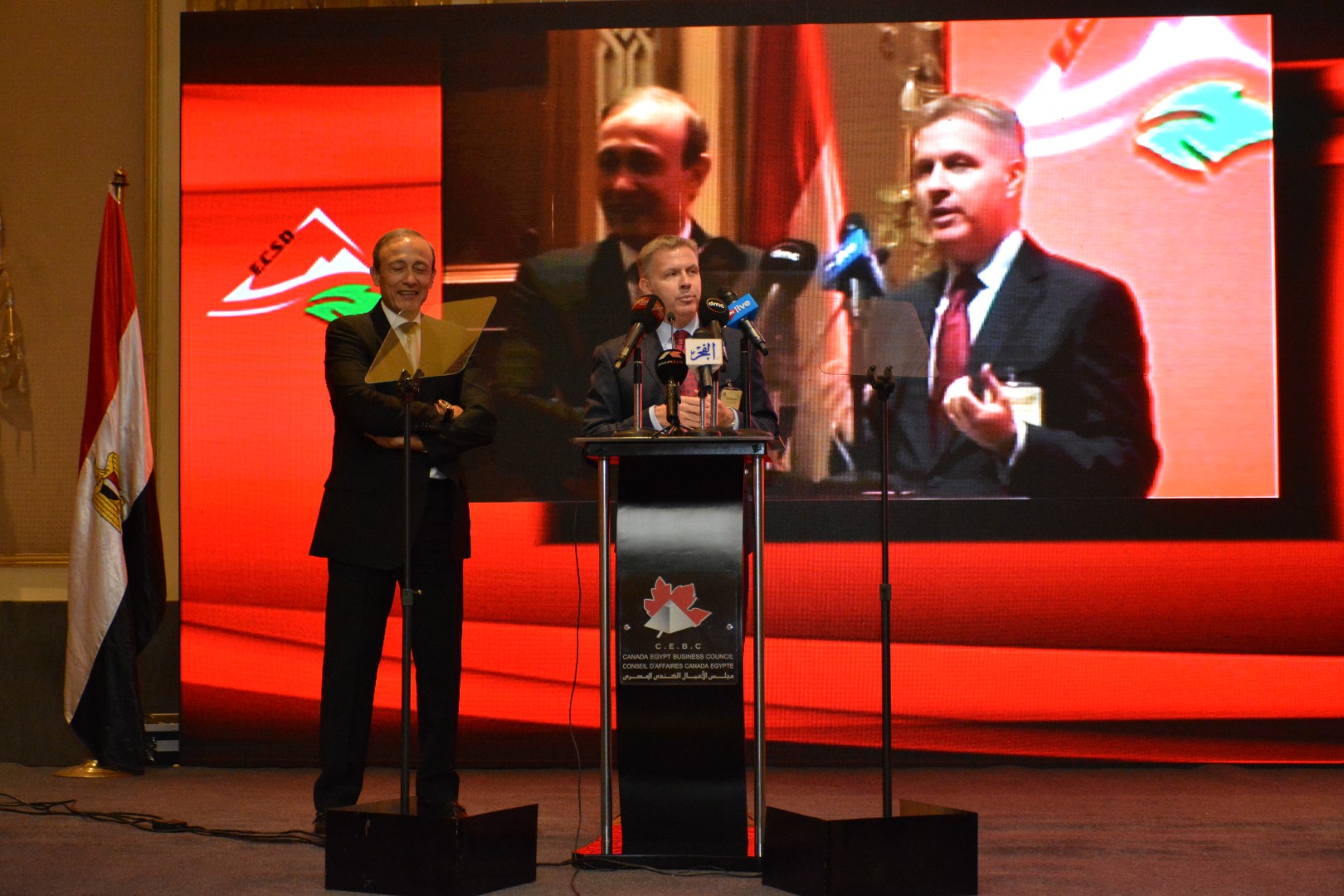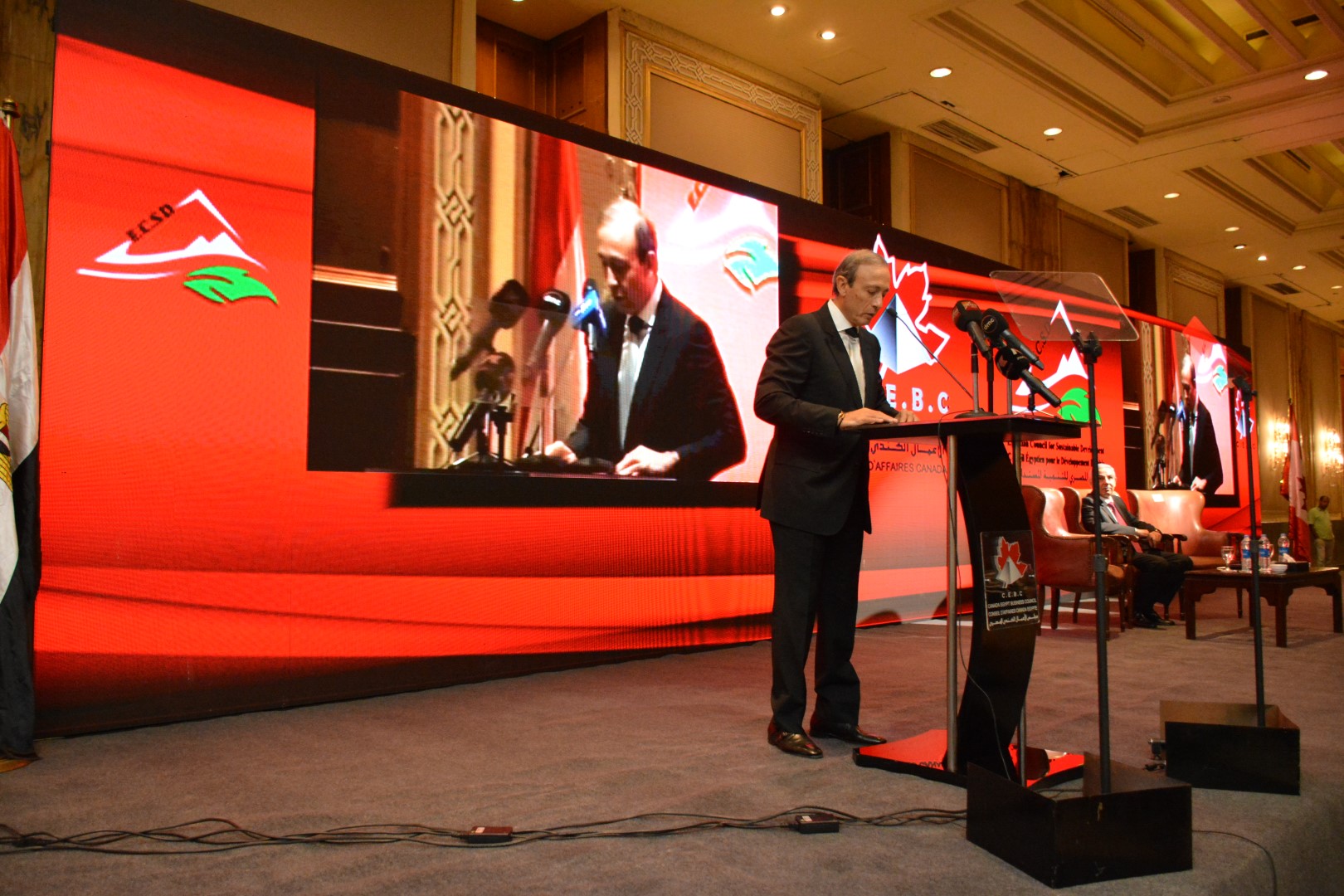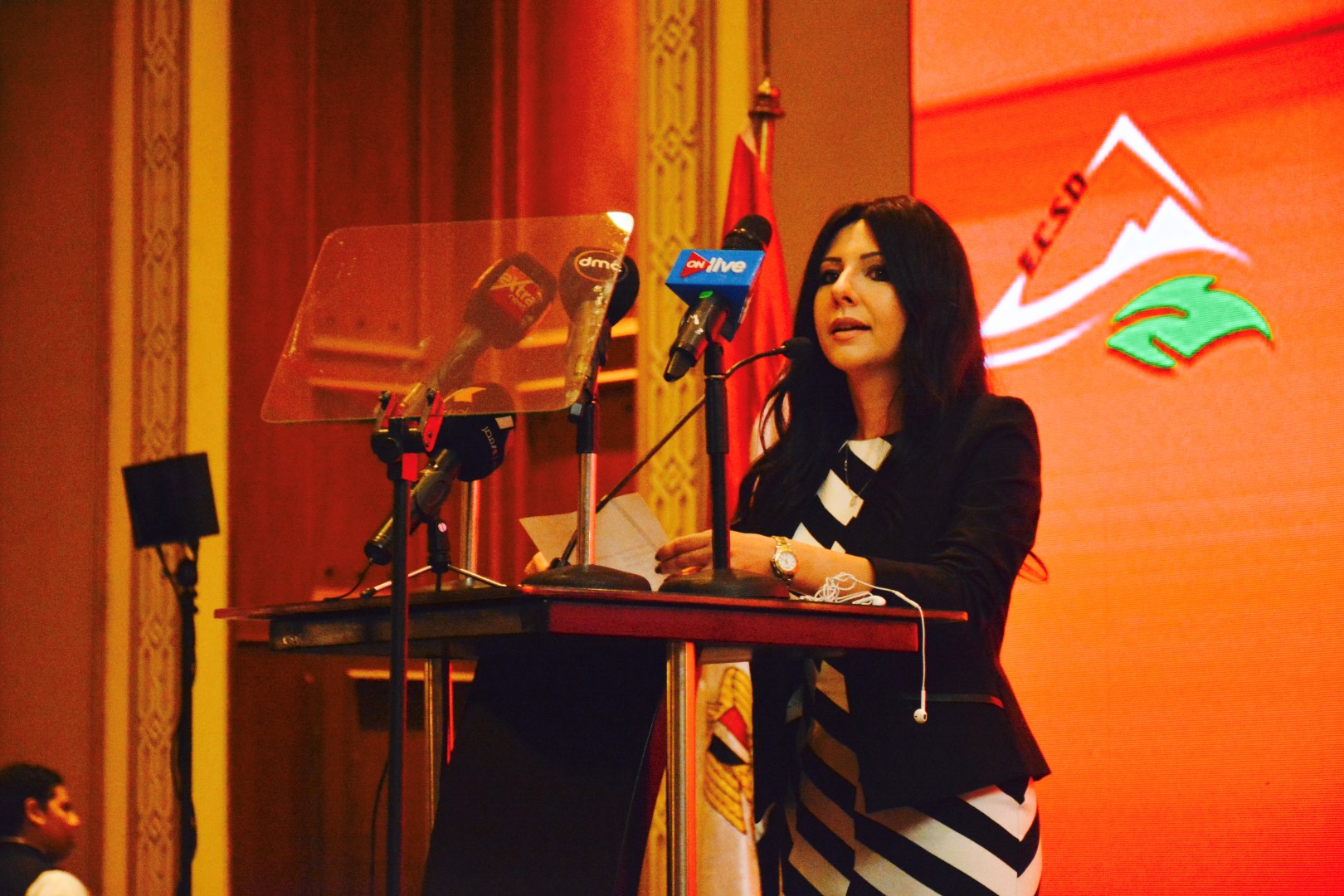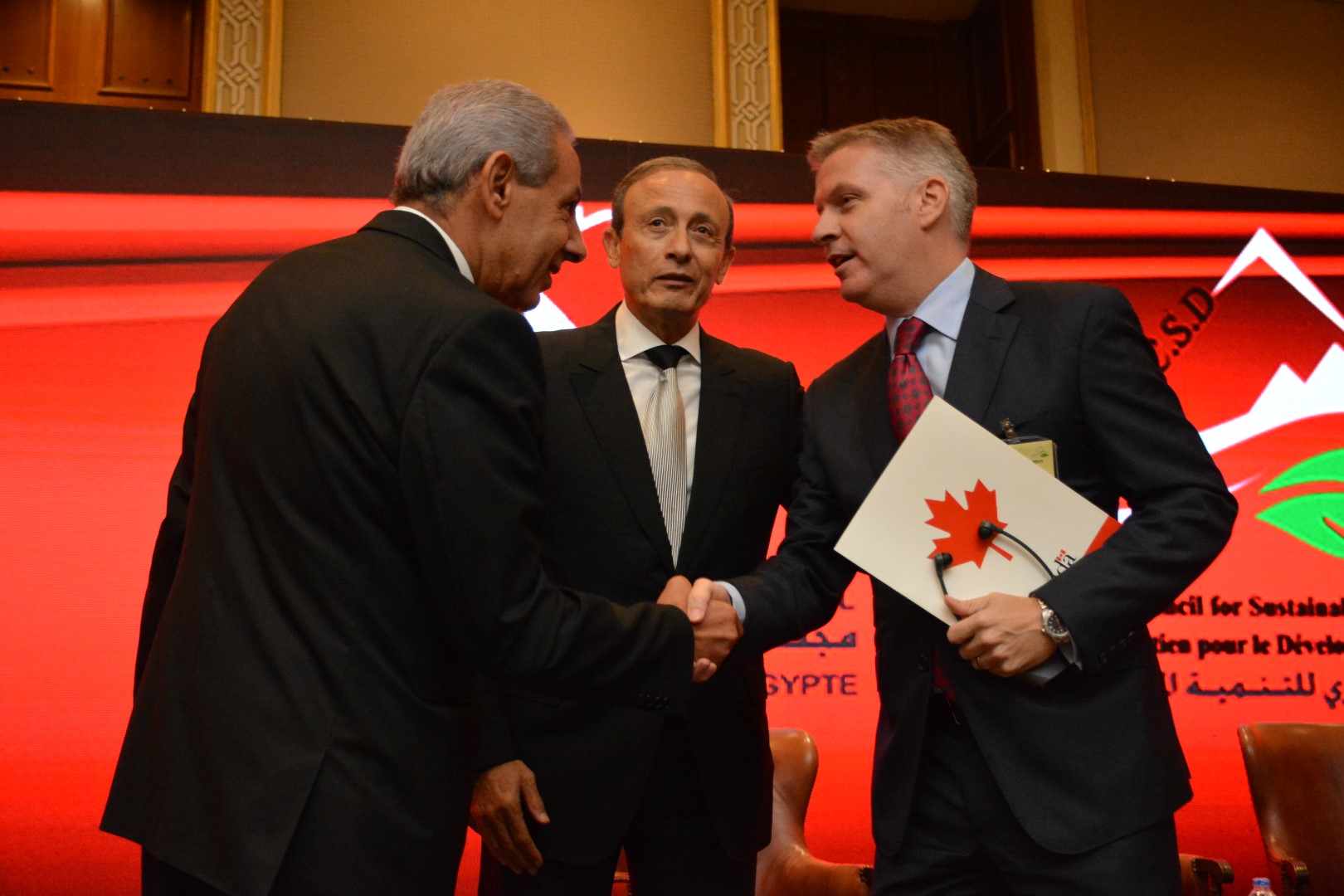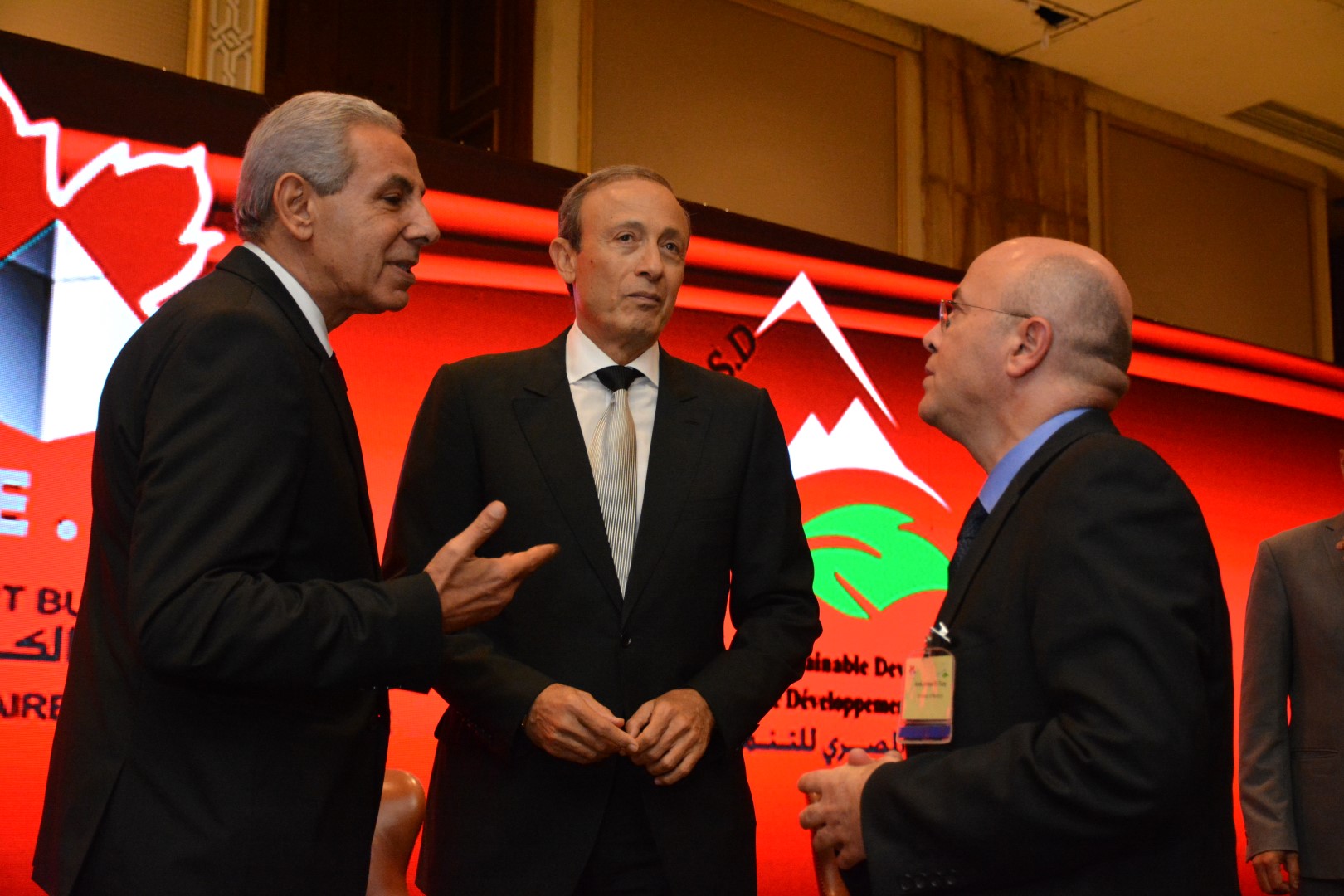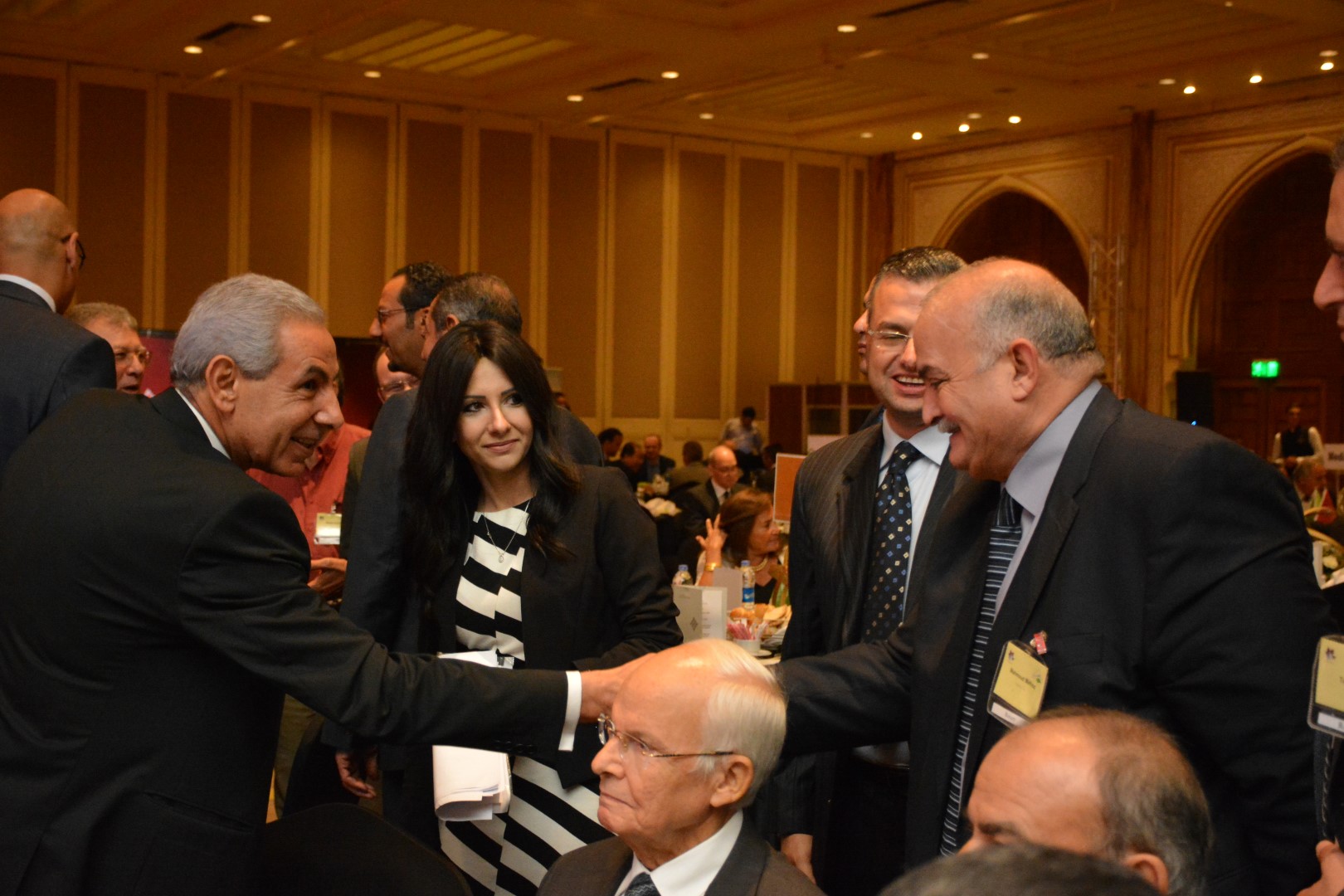
Date
Speaker(s)
Designation
Presentation
Description
Over the past decades, the Egyptian industry had faced several challenges, which hindered the growth of many sectors, despite the availability of possibilities and resources that pave the way for its launch. Therefore, the Ministry of Trade and Industry has prepared an ambitious strategy to develop and upgrade the Egyptian industry in order to increase its competitiveness and contribution to the national economy. But despite the optimism of the government’s efforts in this issue, the question remains how to overcome the current challenges. In this context Canada Egypt business council and the Egyptian council for sustainable development organized an event with H.E Tarek Kabil to discuss all the challenges and opportunities faced by the industrial sector.
In the opening remarks, Eng. Motaz Raslan welcomed the members and guests, then he mentioned that the industrial sector is one of the most important economic sectors in Egypt of which we should depend on to achieve sustainable development. He added that this sector has suffered huge obstacles in the past years due to the several challenges and changes that have been affecting the Egyptian economy, but fortunately the development of the industrial sector is currently the top priority of the government, where several plans and laws are being studied for achieving the aimed target. He highlighted that H.E Tarek Kabil is best to describe all efforts done during the current economic period, and the main locomotive for comprehensive development which shape the mechanisms of economic growth, job creation and the efficient use of economic resources. Eng. Motaz ended his speech with the biography of the minister, thanking him for his great efforts and for joining CEBC and ECSD event.
H.E Tarek Kabil began his speech pointing to the depth of the economic relations between Egypt and Canada in a two-way geographical level, where the trade volume between the two countries increased to 1.1 billion dollars last year. Egypt’s exports to the Canadian market registered a growth rate of 35 percent, rising to 780 million dollars from 580 million dollars in 2015, and the Egyptian imports from Canada fell by 25% to reach 250.5 million dollars compared to 334.7 million dollars in 2015, where the balance of trade reached a surplus in favor of the Egyptian market by 529.5 million dollars, and the volume of the Canadian investments in Egypt is currently about 2 billion dollars.
The minister added that the ministry’s strategy for industrial development and foreign trade is based on five main axes. The first axis includes the promotion of industrial development by increasing the growth rate of industrial output to 8% and increasing its contribution to the GDP to 21% in 2016 compared to the same period in 2015.
The minister further explained that such development was a result of the supply of 15 million meters of industrial zones during the beginning of 2016 until the end of June 2017 and the opening of 1500 new factories with investments of 48 billion pounds. Also there is a possibility of increasing this percentage based on the approval of more than 5000 industrial certificates for new expansions and factories, with investments that amount up to 150 Billion pounds, which will provide 250 thousand new jobs; and waiting for the approval of 1300 applications for licensing once the licensing law and its executive regulations are launched. Also, the enlargement of the transfer of industrial clusters to equipped industrial areas, together with the expansion of industrial clusters for small industries through the creation of industrial facilities ready with their license within large industrial complexes, to complete the supply chains. Moreover, there is a specific industrial investment map for the applicable needed areas with the sizes and types of factories, which is a proof of a full detailed database for local and foreign investors.
The second axis includes the development of small, medium and micro enterprises and entrepreneurship to increase the growth of this sector by 10% annually, and the establishment of 344 thousand new projects in this sector by contributing to the conversion of nearly 200 thousand projects from the informal sector to the formal sector to change the structure of exports in order to include technological and cognitive components, promoting innovation and environmental friendly industries.
H.E Kabil said that the ministry is currently working to provide financing for small and medium enterprises, where SMEs had been funded by amount up to 7 billion pounds during the last period. The ministry is also encouraging the idea of entrepreneurship and developing it, especially in the field of industrial innovations through several competitions between students, and competition for recycling industrial rubbish outflowing from 10th of Ramadan and 6th of October cities; these competitions resulted in 10 recycling projects, moreover to the training of 150 women from all over the republic to promote their business, where 15 women had been sent to the UAE to market their products through “Creative Egypt” project, which is a successful experience in business development and the transition to the formal sector through the 500 and 115 leading business association by 1230 members.
He added that the establishment of the SME and Entrepreneurship Development Agency is a real achievement for Egypt to keep pace with its counterparts in the countries of the world where the authority is developing this sector, managing its affairs and organizing development initiatives, whether provided by other ministries, associations or private institutions.
Furthermore, the minister spoke about the rest of the axes which included promoting foreign trade to reduce the balance of trade deficit, and developing education to have a better labor force, as human capital is a pain pillar for the target goal. Finally, he addressed the role of the government in developing services and establishing new laws that would promote the standard of living and facilitate the investment process.
The floor was then opened for questions and answers session where several ideas and suggestions were raised considering how to overcome all obstacles that are facing the target goal of the industrial development.


